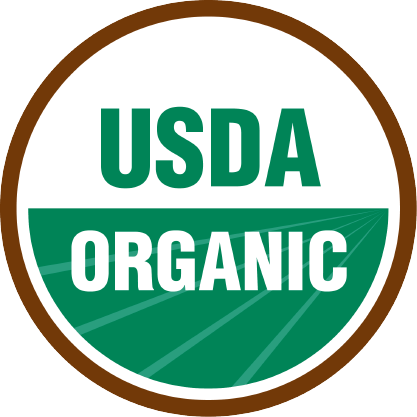
We are two sisters
Who decided to use the milk from our
family farm
to make nutrient-dense, always honest,
simply yummy yogurt.
ABOUT US
It’s our mission to
connect
you directly with the source of your food,
American farmers.
Our Promise
We’re 100% committed to organic
regenerative
farming practices that are
good for you
and the planet.
We promise absolutely
no fillers or
funny stuff.
Our yogurt is always
USDA certified
organic,
pasture-raised,
non-GMO,
and free of antibiotics, hormones, and chemicals.
We are hayley and stephanie painter.
Sisters, co-founders, and co-ceos.
We grew up running barefoot at Painterland Farms in the rolling hills of Tioga County, Pennsylvania, where our family has been farming for four generations.
We eventually left for college and to travel the world. But the more we experienced, the more we realized just how special our home really is.
It’s our passion to share the joy, beauty, and hard work of farming. We wanted to find a way to connect more people directly with American farmers.
Painterland Sisters Organic Skyr Yogurt was born.
Farming You Can
Feel Good About
Painterland Sisters organic skyr yogurt is always made with USDA certified organic milk. we and Our partner farms go above and beyond USDA standards to care for our land, animals, and workers. check out some of the benefits…
No harmful chemicals
No synthetic herbicides, pesticides, hormones, or antibiotics allowed. That stuff doesn’t belong in the soil or our bodies.
Healthy, Happy Animals
Animals on our farms live long, happy lives. They graze on pastures and enjoy the attention of devoted caretakers.
Smaller Carbon Footprint
Organic farms use 45% less energy and release 40% fewer carbon emissions than conventional farms.
Safe, Healthy Farm Workers
Our mission is to support the American Farmer by giving them a voice and providing a connection with consumers like you! Only 2% of the population are farmers - these are women, men, and children who are the stewards of our lands. Telling their stories provides them with the ability to be heard so they can continue the tough, needed, and prideful job of caretakers of the land, animals, and environment.
Healthy, fertile soil
Practices like crop rotation and rotational grazing, support high-quality soil thriving with carbon and nutrients.
More Bees and Butterflies
Organic farming creates a diverse, non-toxic landscape full of flowers and bugs. Bees, butterflies, bats, and birds love it!
Clean Waterways
Organic farming reduces water pollution and conserves water because it creates healthy soil, which absorbs more moisture.
At Painterland farms, we’re proud to practice
full-circle farming.
From growing the grain to harvesting and milling it ourselves, we take control over every step of the process.
We feed our cows a mix of our homegrown feed and sweet grass from open pastures. We use all-natural fertilizers (aka cow poop) to restore fertility to our fields.
The result is happy cows, healthy soil,
and organic skyr yogurt that
tastes good
and does good.

Farming and family
are at the heart of everything we do.
Hayley, Stephanie, and their dad overlook Painterland Farms.






